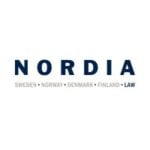-
What are the key financial crime offences applicable to companies and their directors and officers? (E.g. Fraud, money laundering, false accounting, tax evasion, market abuse, corruption, sanctions.) Please explain the governing laws or regulations.
Directors
Tax (evasion) crime:
Tax crimes are regulated in the Tax Offences Act (1971:69). The most common offence prosecuted under this act is tax crime which criminalizes intentional submission of incorrect information, or failure to submit a tax return, statement of earnings and deduction, or other required information to the authorities.
Accounting/Bookkeeping crime:
Accounting/Bookkeeping crimes are regulated in the Penal Code (1962:700), Chapter 11 section 5, and criminalizes intentional or negligent disregard of a company’s book-keeping obligation as regulated in the Accounting Act (1999:1078). Failure to record business transactions or maintain accounting information or providing incorrect information in the accounting records is criminalized if a result of this is that the course of events in the business, its financial results or position cannot be reliably assessed on the basis of the accounting records.
Insider trading/market abuse:
Insider dealing, unauthorised disclosure of inside information and market manipulation are offences criminalized under Chapter 2 of the Securities Market (Market Abuse Penalties) Act (2016:1307).
The Market Abuse Regulation (EU Regulation No 596/2014) (“MAR”) also sets out various rules in relation to market abuse, and breaches of the MAR can attract significant administrative fines.
Bribery/corruption:
Corruption crimes are criminalized under Chapter 10 of the Penal Code (1962:700).
Corruption is a general term for giving or receiving bribes, showing disloyalty to the principal and exploiting one’s position to obtain undue advantage for one’s own or another’s gain.
There is no general guideline for what counts as a bribe. In Chapter 10 of the Penal Code, a bribe is referred to as an “improper benefit”. In addition to money, such a benefit can include gifts, entertainment and travel expenses etc. It is not possible to say what is permissible to accept, as it depends on the circumstances of the individual case, such as whether the parties involved work in the public or private sector and the value of the benefit.
Corruption crimes are handled and prosecuted by the National Anti-Corruption Unit. The unit also handles cases that are closely linked to these crimes, such as match-fixing in organised sports.
Money laundering:
Money laundering is criminalized under section 3 of the Act on penalties for money laundering offences (2014:307). The provision criminalizes measures intended to conceal the fact that money or other property derives from an offence or from criminal activities or to promote the possibility of someone appropriating the property or its value.
Under section 7 of the act commercial money laundering is also criminalized. The crime was introduced in 2014 and is committed by someone who, in the context of business operations or as part of activities that are conducted habitually or otherwise extensively, takes part in a measure that can reasonably be assumed to be taken for money laundering purposes. The provision does not require a prior offense to be proven meaning that participation in objectively suspicious transactions is criminalized.
-
Can corporates be held criminally liable? If yes, how is this determined/attributed?
No, but a company can be subject to a corporate fine. A corporate fine is a financial sanction designed as a special legal effect of a crime that, under certain conditions, may be imposed on a company or other legal entity for the purpose of punishment.
Corporate fines are regulated in Chapter 36 of the Penal Code (1962:700). Crimes that may be relevant are violations of regulations and rules on how a certain business should be conducted, and other crimes committed within the framework of the business where the business is used as a tool for crime – directly or indirectly – or where the crime has otherwise resulted in a financial advantage for the business.
A corporate fine should may imposed on a company for if the offence carries a more severe penalty than a fixed fine and was committed in the exercise of: 1) business activities; 2) public activities that can be equated with business activities; or 3) other activities conducted by a company, if the offence was liable to lead to financial advantage for the company.
The imposition of a corporate fine on the company also requires that: 1) the company did not do what could reasonably be required to prevent the offence; or 2) the offence was committed by: a) a person with a leading position in the company based on a power of representation of the company or to take decisions on its behalf; or b) a person who otherwise had particular responsibility for supervision or control of the activities.
As a corporate fine is a special legal effect of a crime, there must be full evidence that a crime has been committed in order for a lawsuit for a corporate fine to be filed. However, it is not required that any person is prosecuted for the crime or even identified as a suspect.
When determining the size of the corporate fine (see Ch. 36 section 24), a sanction value of at least five thousand SEK and at the most ten million SEK shall first be determined. The sanction value shall be determined based on the penal value for the overall crime. Special consideration shall be given to the damage or danger caused by the crime and to the relationship between the crime and the business. Reasonable consideration shall also be given to whether the company has previously been ordered to pay a corporate fine.
If the sanction value amounts to at least SEK 500,000, the corporate fine for a larger company shall be set higher than that provided for in Section 24 (increased corporate fine, see section 25). The increased corporate fine shall be set at an amount that is justified considering the company’s financial position. However, an increased corporate fine may not be set at more than an amount equivalent to fifty times the sanction value (meaning that the increased fine can amount to a maximum of SEK 500 million).
-
What are the commonly prosecuted offences personally applicable to company directors and officers?
Company directors and officers have been personally prosecuted for most of the offences referred to in Q1. The most common financial crimes in Sweden are Tax (evasion) crime and Accounting/Bookkeeping crime.
-
Who are the lead prosecuting authorities which investigate and prosecute financial crime and what are their responsibilities?
Financial crimes (e.g. tax (evasion) crimes, accounting/bookkeeping crimes, insider trading/market abuse, money laundering) are handled and prosecuted by the Swedish Economic Crime Authority.
Corruption crimes and cases that are closely linked to these crimes are handled and prosecuted by the National Anti-Corruption Unit (part of the Swedish Prosecution Authority).
-
Which courts hear cases of financial crime? Are they determined by tribunals, judges or juries?
All the General Courts (as opposed to the Administrative Courts) hear cases of financial crimes; the District Courts (e.g. Stockholm District Court), the Courts of Appeal (e.g. Svea Court of Appeal) and the Supreme Court.
The cases in the District Courts are normally ruled by one law-learned judge with a panel of three lay judges. The cases in the Courts of Appeal are normally ruled by three law-learned judges with a panel of two lay judges.
-
How do the authorities initiate an investigation? (E.g. Are raids common, are there compulsory document production or evidence taking powers?)
Most of the crimes that the Swedish Economic Crime Authority investigates have been reported by bankruptcy trustees, the Swedish Tax Agency or the general public.
For instance, the Swedish Tax Agency handle administrative questions related to the taxation of both individuals and companies. If the Swedish Tax Agency – while handling a tax audit or case – has a reason to believe a tax evasion crime has been committed they will report this to a specific criminal investigation unit within the Swedish Tax Agency that cooperate with prosecutors at the Swedish Economic Crime Authority.
A trustee/official receiver of a company in bankruptcy also has a duty to report suspected crimes committed in the company (by individuals) to the authorities.
Seizure of documents and assets, copying, covert coercive measures etc. are all common investigative measures taken by the prosecuting authorities. These measures are regulated in Chapter 27 of the Code of Judicial Procedure (1942:740).
Search of premises and other measures are common and may be conducted if there is reason to believe that a crime has been committed for which imprisonment may follow and will, inter alia, be conducted to search for objects that can be seized or to discover circumstances that may be of importance for the investigation. These measures are regulated in Chapter 28 of the Code of Judicial Procedure (1942:740).
-
What powers do the authorities have to conduct interviews?
During the preliminary investigation the authorities have extensive powers to conduct interviews. Rules on the preliminary investigation phase can be found in Chapter 23 of the Code of Judicial Procedure (1942:740). See also the Decree (1947:948) on Preliminary Investigation.
During the preliminary investigation interviews can be held with anyone who is believed to be able to provide information of importance to the investigation (Ch. 23 section 6 of the Code of Judicial Procedure). It is a general obligation to submit to questioning and this applies to both suspects and others.
A person to be questioned during the preliminary investigation may be summoned to appear at the questioning, subject to a fine, if it is appropriate in view of the circumstances of the individual case (Ch. 23 section 6 a of the Code of Judicial Procedure).
A person who, without valid reason, fails to comply with a summons to appear for questioning may be brought in for questioning, if it has been scheduled to be held at a location within ten kilometers of the place where he or she has his or her residence or was at the time of receipt of the summons. A person may also be brought in for questioning without a prior summons if the investigation concerns an offense punishable by imprisonment and it can be reasonably feared that a person would not comply with a summons or that he or she would, as a result of a summons, obstruct the investigation by removing evidence or obstruct the investigation in some other way (Ch. 23 section 7 of the Code of Judicial Procedure).
-
What rights do interviewees have regarding the interview process? (E.g. Is there a right to be represented by a lawyer at an interview? Is there an absolute or qualified right to silence? Is there a right to pre-interview disclosure? Are interviews recorded or transcribed?)
Both during the preliminary investigation and during court proceedings, a lawyer or other person may be hired as a defence attorney (see Ch. 21 section 3 of the Code of Judicial Procedure).
In connection with a person reasonably suspected of a crime being informed of the suspicion, he or she shall also be informed of his or her right to
- hire the assistance of a defence attorney and, under certain conditions, to have a public defender appointed
- not have to comment on the suspicion nor otherwise have to participate in the investigation of their own guilt
(see Section 12 in the Decree (1947:948) on Preliminary Investigation. Please note that above bullet points are not an exhaustive list of rights).
The right to silence is absolute. Interviews are generally both recorded and transcribed (see Section 20 in the Decree (1947:948) on Preliminary Investigation on the preliminary investigation report).
-
Do some or all the laws or regulations governing financial crime have extraterritorial effect so as to catch conduct of nationals or companies operating overseas?
Rules on jurisdiction can be found in chapter 2 of the Penal Code (1962:700).
If a financial crime has been committed abroad, the Swedish court in general has jurisdiction provided that for instance certain criteria regarding the offender’s nationality is met and dual criminality is at hand.
For instance, chapter 2 section 3 of the Penal Code states that Swedish courts have jurisdiction to adjudicate offences committed outside Sweden in the exercise of the business activities of a Swedish company and the offence is giving of a bribe, gross giving of a bribe or trading in influence under Chapter 10, Section 5d, point 2.
Note that the penalty cannot exceed the maximum sanction prescribed under the law of the other country.
-
Do the authorities commonly cooperate with foreign authorities? If so, under what arrangements?
Yes, cooperation between Swedish prosecuting authorities and foreign authorities is common.
Rules on such international cooperation can be found in the International Legal Assistance in Criminal Matters Act (2000:562). International legal assistance in criminal matters aims to enable prosecutors and courts in Sweden and abroad to assist each other in criminal investigations. Legal assistance can be requested and provided both at an early stage in the criminal investigation and during the trial.
When gathering evidence within the EU – except in relation to Denmark and Ireland – the rules on international legal assistance in criminal matters do not normally apply. Instead, the European Investigation Order Act (2017:1000) applies.
-
What are the rules regarding legal professional privilege? What, if any, material is protected from production or seizure by financial crime authorities?
Rules on legal professional privilege can be found in the Code of Judicial Procedure (1942:740).
A lawyer (Advokat) is obliged to keep secret what he learns in the course of his professional practice when good legal practice requires this.
Lawyers (Advokater) may be heard as witnesses regarding what has been entrusted to them in the exercise of their profession or which they have experienced in connection therewith, only if it is permitted by law or the person to whose benefit the duty of confidentiality applies consents to it.
Defence attorneys may be heard as witnesses regarding what has been entrusted to them for the performance of their duties only if the party so permits.
Note that there is an obligation to testify for lawyers and their assistants, but not defence attorneys, in cases concerning serious crimes (for which a lesser penalty than imprisonment for two years is not prescribed).
If it can be assumed that a document contains information that an official or other person may not disclose under testimony under Chapter 36, Section 5, and the document is held by him or her or by the person for whose benefit the duty of confidentiality applies to the document may not be seized.
-
What rights do companies and individuals have in relation to privacy or data protection in the context of a financial crime investigation?
The processing of personal data is generally regulated by the EU General Data Protection Regulation (GDPR). However, the processing of personal data in the police’s law enforcement activities is regulated by the Criminal Data Protection Act (2018:1177) and the Act (2018:1693) on the processing of personal data by the police within the scope of the Criminal Data Protection Act (the Police Criminal Data Protection Act).
For instance, according to chapter 4 of the Criminal Data Protection Act (2018:1177), a person has a right to know whether personal data concerning him or her is being processed and information regarding the right to request correction, deletion or restriction of processing.
However, these rights can be restricted e.g. in the interest of preventing, deterring or detecting criminal activity and investigating or prosecuting criminal offences.
Investigative measures (secret coercive measures) that are allowed according to Code of Judicial Procedure (1942:740) such as secret interception of electronic or telecommunications of course constitute a restriction of a citizen’s constitutional rights according to the Instrument of Government (1974:152)). Such restrictions may not go beyond what is necessary with regard to the purpose of it and may not threaten the free formation of opinion.
-
Is there a doctrine of successor criminal liability? For instance in mergers and acquisitions?
No. Criminal liability is individual and as described under Q2 corporates cannot be held criminally responsible as the Penal Code only criminalizes acts by natural persons. A successor entity after a merger could however receive a corporate fine for a target company’s violation prior to the merger.
-
What factors must prosecuting authorities consider when deciding whether to charge?
The prosecuting authorities have a duty of objectivity, meaning that a preliminary investigation shall be conducted objectively. During the preliminary investigation, the prosecutor and the persons assisting him or her shall seek out, take into account and consider circumstances and evidence that speak both in the suspect’s favour and to his or her detriment.
The preliminary investigation shall be conducted in such a way that no one is unnecessarily exposed to suspicion or caused any expense or inconvenience. The preliminary investigation shall also be conducted as expeditiously as the circumstances permit. If there is no longer any reason to continue the preliminary investigation, it shall be discontinued.
The duty of objectivity is also applicable after charges have been filed and during the court proceedings.
-
What is the evidential standard required to secure conviction?
The prosecutor must prove that the defendant is guilty of the alleged offence beyond a reasonable doubt.
-
Is there a statute of limitations for criminal matters? If so, are there any exceptions?
Yes. Statute of limitations for criminal matters are regulated in chapter 35 of the Penal Code (see specifically section 2 and 4).
For instance, there is a statutory limitation on criminal prosecution meaning no sanction may be imposed unless the suspect has been remanded in custody or served with notification of prosecution for the offence or accepted a summary imposition of a fine within a certain time period (which differs depending on how severe of a penalty can be imposed, see Ch. 35 section 2).
In section 4 there are rules on when a sanction may never be imposed in a case where a certain time has passed.
-
Are there any mechanisms commonly used to resolve financial crime issues falling short of a prosecution? (E.g. Deferred prosecution agreements, non-prosecution agreements, civil recovery orders, etc.) If yes, what factors are relevant and what approvals are required by the court?
No.
However, a preliminary investigation does not always lead to prosecution and trial even if the prosecutor believes there is evidence that the crime has been committed. If the suspect admits that he or she has committed the crime and it is clear what the punishment will be, the prosecutor can issue what is a summary imposition of a fine. A summary imposition of a fine has the same legal effect as a judgment and will be recorded in the criminal record with the difference that the prosecutor does not press charges and no trial is held. The penalties that may be considered in a summary imposition of a fine are a fine or a conditional sentence. It is voluntary to accept a summary imposition of a fine. If it is not accepted the prosecutor will press charges and the case will be tried by the court instead.
-
Is there a mechanism for plea bargaining?
No.
-
Is there any obligation to disclose discovered misconduct to prosecuting authorities, or any benefit to making a voluntary disclosure? Is there an established route or official guidance for making such disclosures?
In general there is no obligation to disclose discovered misconduct to prosecuting authorities (unless failure to do so it is specifically criminalized in a provision, see chapter 23 section 6 of the Penal Code).
The Act on measures against money laundering and terrorist financing (2017:630) contains provisions on measures that those who conduct financial and other business activities are obliged to take to prevent the activities from being exploited for money laundering or terrorist financing. According to the act businesses, both financial companies (e.g. banks) and certain non-financial operators (e.g. law firms) operating under the act, have a duty to report suspected activities or transactions to the Police without delay.
-
What rules or guidelines determine sentencing? Are there any leniency or discount policies? If so, how are these applied?
Rules on sentencing can be found in the Penal Code (see specifically chapters 29 and 30).
In general a punishment shall, taking into account the interest of uniform application of the law, be determined within the framework of the applicable range of punishment according to the penal value of the crime or the aggregate of crimes.
There are provisions allowing for leniency and sentence reductions. A court can, inter alia, consider if the defendant, due to old age or poor health, would be disproportionately affected by a sentence imposed according to the penal value of the crime, if an unusually long period of time, in relation to the nature of the crime, has elapsed since the crime was committed or if the defendant has tried to prevent, remedy or limit the harmful effects of the crime to the best of his ability.
When determining the sentence, the court shall, in addition to the penal value of the crime, take into account to a reasonable extent whether the defendant provides information that is of essential importance for the investigation of the crime. The same applies if the defendant provides information that is of essential importance for the investigation of someone else’s crime. If any of these circumstances are at hand, the court may impose a lighter sentence than that prescribed for the crime (and if there are special reasons for it).
-
How are compliance procedures evaluated by the prosecuting authorities and how can businesses best protect themselves?
In order for businesses to best protect themselves it is generally advised to have well-structured and documented internal procedures and policies focusing on the potential risks associated with the specific business being conducted (and that such procedures and policies are continuously updated as well as compulsory for employees). Businesses should also assess the nature and extent of their exposure to potential risks of offending behaviour, both internal and external as well as continuously strengthen their risk assessments.
Furthermore, it is generally advised to conduct both supplier and customer due diligence before engaging in any business activities. The Swedish Economic Crime Authority has published a “checklist” with potential “red flags” to be aware of if intending to conduct business with a new business entity.
Some businesses are specifically regulated and as such have certain rules to follow. By following these rules, the businesses also protect themselves from being used for criminal purposes. For instance, the Act on measures against money laundering and terrorist financing (2017:630) contains provisions on measures that those who conduct financial and other business activities are obliged to take to prevent the activities from being exploited for money laundering or terrorist financing. According to this act, businesses are obliged to do a general risk assessment on how the products and services provided in the business can be used for money laundering or terrorist financing and how great the risk is of this occurring. Businesses are also obliged to take measures on knowing their customer (Know your customer, KYC procedures) to conduct business.
-
What penalties do the courts typically impose on individuals and corporates in relation to the key offences listed at Q1?
Individuals:
Penalties can range from conditional sentence (often combined with day fines or community service) to imprisonment for up to six years for most offences.
Penalties for individuals who have committed financial crimes are often combined with a trade ban (regulated in the Trading Prohibition Act (2014:836)) for a certain period of time, a minimum of 3 years and a maximum of 10 years.
Corporates: See answer under Q2.
-
What rights of appeal are there?
A person convicted of a crime has a right to appeal the judgment (both the conviction and the sentence) of the District Courts to the Courts of Appeal and the judgment of the Courts of Appeal to the Supreme Court. If the crime is considered less serious with a penalty of a fine or imprisonment for a maximum of six months, a so called permit review is required for the Court of Appeal to take up and hear the case.
The Supreme Court must always grant a so called permit review in order for a case to be taken up and heard by the court (which as a general rule is granted only if the decision can have significance as a precedent to give guidance on how other similar cases should be assessed).
-
How active are the authorities in tackling financial crime?
The authorities are very active in tackling financial crime.
The general view from the authorities and the Government is that financial crimes have changed and evolved in recent years and that financial crimes are now an integrated part of other organized crime.
Since 2009, Swedish authorities have been collaborating with intelligence and operational efforts against criminal individuals and networks in an effort to combat organized crime.
On June 22, 2023, the Swedish Government decided to appoint a special investigator to analyze and evaluate the Swedish Economic Crime Authority’s mission and structure and propose the organizational and legal changes needed to improve and streamline the work against criminal networks and organized economic crime. In its report (Swedish Government Official Reports, SOU 2025:81, A new organization of the fight against financial crime) the investigator proposed, among other things, that the Swedish Economic Crime Authority be dismantled and merged with the Police Authority to create a stronger and more efficient organization.
Instead of proceeding with the proposed changes, the Swedish Government will review how the Swedish Economic Crime Authority’s operations can be improved and made more efficient through measures in three stages:
- The Government will proceed with forwarding the investigation’s proposals in those parts that improve the fight against the criminal economy. This applies in particular to the proposals that the Swedish Economic Crime Authority and the Police Authority should be given access to additional registers and that more law enforcement authorities should be given the opportunity to assist the Swedish Enforcement Agency with remote seizure.
- The Swedish Economic Crime Authority, the Police Authority and the Prosecution Authority will be tasked with jointly finding solutions that in the short term and within the authorities’ existing appropriations can strengthen society’s overall ability to fight financial crime.
- The Government will review how the Swedish Economic Crime Authority can be improved and made more effective in the longer term. This could, for example, involve reviewing the Swedish Economic Crime Authority’s powers.
-
In the last 5 years, have you seen any trends or focus on particular types of offences, sectors and/or industries?
A trend in recent years have been a focus on different measures to tackle money laundering, for instance through introducing a new crime called “commercial money laundering” in 2014 (see above Q1). This trend can also be seen in recent public demands from the Swedish Government that banks strengthen their preventive work against money laundering (partly to due to a recent trial regarding an alleged money laundering operation where the prosecutor is claiming that roughly 400 MSEK were laundered through commercial bank accounts).
-
Have there been any landmark or notable cases, investigations or developments in the past year?
In 2024, a former CEO of a Swedish bank was sentenced by the Court of Appeal to one year and three months in prison for gross swindling/fraud.
The Court of Appeal concluded that the CEO provided misleading information in two interviews in connection with the bank’s release of its third-quarter report for 2018.
The court found that the information conveyed the misleading message that there were no suspected money laundering links to another bank’s operations in Estonia. According to the Svea Court of Appeal, the information was likely to influence the assessment of the Swedish bank in financial terms and thereby cause damage.
The case has drawn significant attention from both the media and the public.
The former CEO appealed the court’s judgement and the Supreme Court has now granted leave to appeal meaning that the Supreme Court will decide whether the CEO should be convicted of the crime (decide whether the statements made by the CEO were misleading within the meaning of the criminal provision on gross swindling/fraud).
-
Are there any pending or proposed changes to the legal, regulatory and/or enforcement framework?
On February 1, 2024, the Swedish Government decided to appoint a special investigator to review the criminal legislation on corruption and misconduct with the aim of ensuring that the legislation is effective, expedient and adapted to Sweden’s international commitments.
On July 25, 2025, the investigator submitted its report (Swedish Government Official Reports, SOU 2025:87, Criminal measures against corruption and official misconduct) to the government. The investigation proposes amendments to criminal law legislation with the aim of making the regulatory framework more efficient in the fight against corruption and makes suggestions on how extended liability for official misconduct can be designed.
The investigation proposes, among other things, that
- corruption crimes be gathered in a new law called the Act on punishment for certain corruption crimes,
- the criminal liability for bribery is clarified and the range of punishment to be stricter,
- the penalty provision for trading in influence is expanded and clarified, the range of punishment to be stricter and a serious crime is introduced,
- a new criminal liability for negligent financing of corruption crimes is introduced,
- an expanded liability for abuse of public office is introduced through a new crime, abuse of public position,
- the range of punishment for official misconduct is stricter and it is clarified which circumstances can be taken into account when assessing whether an act is minor and thus exempt from criminal liability, and
- the possibility for Swedish courts to pass judgment on corruption crimes committed abroad is expanded.
The investigation proposes that the legislative amendments enter into force on January 1, 2027.
-
Are there any gaps or areas for improvement in the financial crime legal framework?
As described under Q1, the crime commercial money laundering was introduced in 2014 and it is committed by someone who, in the context of business operations or as part of activities that are conducted habitually or otherwise extensively, takes part in a measure that can reasonably be assumed to be taken for money laundering purposes. The provision does not require a prior offense to be proven meaning that participation in objectively suspicious transactions are criminalized.
Since a monetary transaction in itself cannot normally be considered suspicious, there should usually be some qualifying circumstance for such a transaction to be reasonably assumed to have been undertaken for the purpose of money laundering. As of now, more than ten years after the provision was introduced, the penalty provision can still be considered unclear and clarifying statements from the Supreme Court would be welcomed on the type of circumstances required for account transactions to be reasonably assumed to have been undertaken for the purpose of money laundering.
Sweden: White Collar Crime
This country-specific Q&A provides an overview of White Collar Crime laws and regulations applicable in Sweden.
-
What are the key financial crime offences applicable to companies and their directors and officers? (E.g. Fraud, money laundering, false accounting, tax evasion, market abuse, corruption, sanctions.) Please explain the governing laws or regulations.
-
Can corporates be held criminally liable? If yes, how is this determined/attributed?
-
What are the commonly prosecuted offences personally applicable to company directors and officers?
-
Who are the lead prosecuting authorities which investigate and prosecute financial crime and what are their responsibilities?
-
Which courts hear cases of financial crime? Are they determined by tribunals, judges or juries?
-
How do the authorities initiate an investigation? (E.g. Are raids common, are there compulsory document production or evidence taking powers?)
-
What powers do the authorities have to conduct interviews?
-
What rights do interviewees have regarding the interview process? (E.g. Is there a right to be represented by a lawyer at an interview? Is there an absolute or qualified right to silence? Is there a right to pre-interview disclosure? Are interviews recorded or transcribed?)
-
Do some or all the laws or regulations governing financial crime have extraterritorial effect so as to catch conduct of nationals or companies operating overseas?
-
Do the authorities commonly cooperate with foreign authorities? If so, under what arrangements?
-
What are the rules regarding legal professional privilege? What, if any, material is protected from production or seizure by financial crime authorities?
-
What rights do companies and individuals have in relation to privacy or data protection in the context of a financial crime investigation?
-
Is there a doctrine of successor criminal liability? For instance in mergers and acquisitions?
-
What factors must prosecuting authorities consider when deciding whether to charge?
-
What is the evidential standard required to secure conviction?
-
Is there a statute of limitations for criminal matters? If so, are there any exceptions?
-
Are there any mechanisms commonly used to resolve financial crime issues falling short of a prosecution? (E.g. Deferred prosecution agreements, non-prosecution agreements, civil recovery orders, etc.) If yes, what factors are relevant and what approvals are required by the court?
-
Is there a mechanism for plea bargaining?
-
Is there any obligation to disclose discovered misconduct to prosecuting authorities, or any benefit to making a voluntary disclosure? Is there an established route or official guidance for making such disclosures?
-
What rules or guidelines determine sentencing? Are there any leniency or discount policies? If so, how are these applied?
-
How are compliance procedures evaluated by the prosecuting authorities and how can businesses best protect themselves?
-
What penalties do the courts typically impose on individuals and corporates in relation to the key offences listed at Q1?
-
What rights of appeal are there?
-
How active are the authorities in tackling financial crime?
-
In the last 5 years, have you seen any trends or focus on particular types of offences, sectors and/or industries?
-
Have there been any landmark or notable cases, investigations or developments in the past year?
-
Are there any pending or proposed changes to the legal, regulatory and/or enforcement framework?
-
Are there any gaps or areas for improvement in the financial crime legal framework?


















